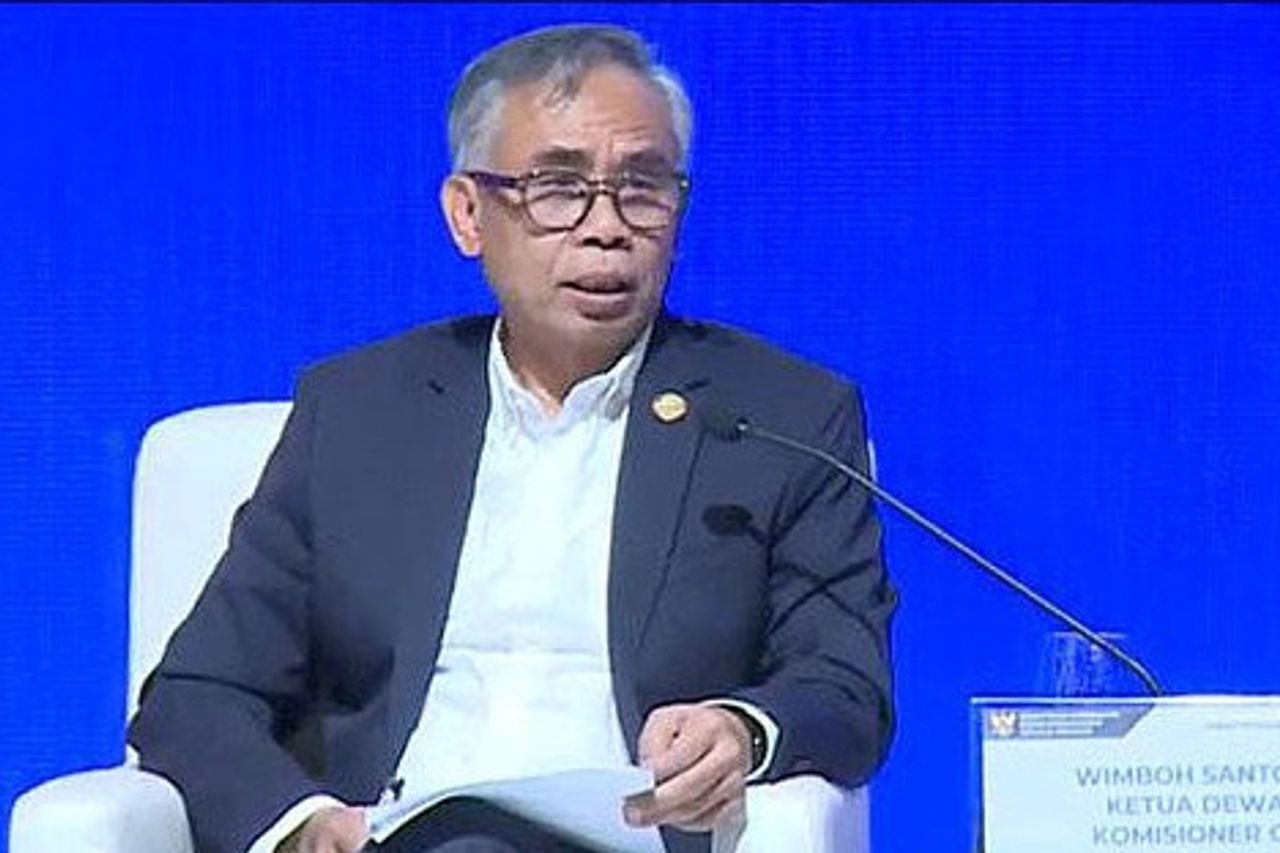Calling The Sharia Financial Industry Has Great Potential, This Is The Profile Of Wimboh Santoso, Who Was Once Director Of The IMF

JAKARTA - The Islamic finance industry, especially banking, is said to have to focus on working on special segments. This statement was expressed by the Chairman of the Board of Commissioners (DK) of the Financial Services Authority (OJK) Wimboh Santoso.
This step was taken so that the Islamic financial industry was able to grow and contribute more to the economy. He also said that if Islamic finance has the potential to be even greater.
"The Islamic finance industry has the potential to develop by working on the retail sector and MSMEs (micro, small and medium enterprises)," he said in a webinar Tuesday, January 19.
In the banking industry, the name Wimboh Santoso is quite well known. Reported by VOI from various sources, Wimboh's early career began when he served as a banking supervisor at Bank Indonesia (BI) in 1984.
From 2010 to 2012, the Men who graduated from the Faculty of Economics, Sebelas Maret University (UNS) in 1983 also served as Director of the Directorate of Banking Regulation at BI.
After that he moved to New York to fill the post of head of BI's representative in 2012. His career took off at the international level. The man who was born in Boyolali March 15, 1957 also served as Executive Director of the International Monetary Fund (IMF) representing ASEAN plus Fiji, Tonga and Nepal. The position ended in April 2015.
After leaving the IMF, Wimboh was appointed as President Commissioner of Bank Mandiri. He replaced Darmin Nasution who was appointed as Coordinating Minister for the Economy.
Wimboh Santoso successfully occupied the seat of the OJK DK for the 2017-2022 period. In voting, he managed to outperform Sigit Pramono.
As an economist, Wimboh said that Islamic finance in Indonesia is sufficient for the grassroots level of society. Therefore, he said that attention must be paid to this segmentation so that the performance of Islamic financial institutions can be accelerated properly.
"Because the Islamic finance industry, especially Islamic banking, which is experiencing credit (financing) problems is working on the commercial segmentation," he said.
According to him, another strategic step to encourage the Islamic financial industry is to synergize government policies with the private sector to create a supportive ecosystem.
"Next, we create the halal ecosystem. For example, we will make halal tourism, the hotel is halal, the financing institution is also halal. Things like this allow the contribution of sharia to be greater," explained Wimboh.
